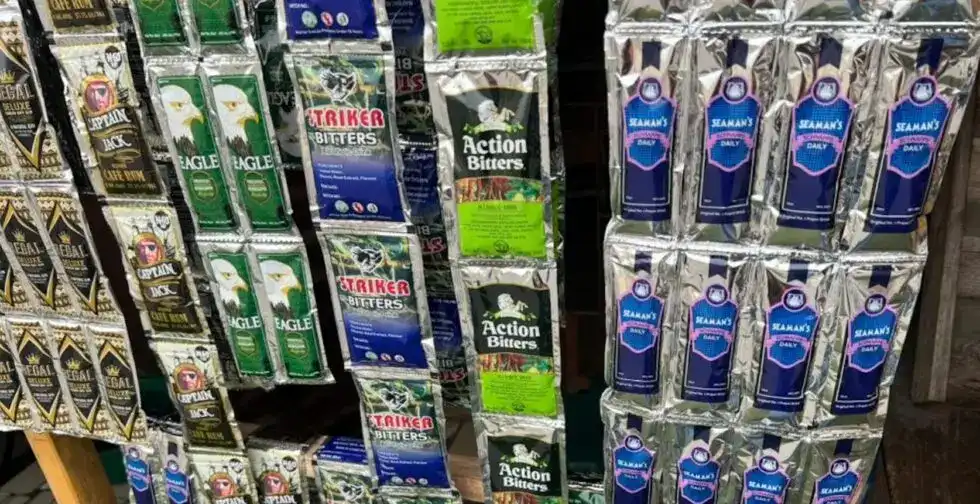The national food and drug safety authority has announced a fixed end date for certain alcoholic products.
The regulatory body confirms that the production and sale of all alcoholic drinks packaged in sachets and in bottles smaller than 200 milliliters must stop entirely by December 2025.
The Director-General of the agency, Mojisola Adeyeye, shared this news during a press briefing on Tuesday. She explained that this key decision is part of a plan to curb the growing misuse of cheap alcoholic drinks among young people and commercial drivers.
Public Health and Social Risks
The Director-General detailed the serious social and public health problems linked to the small packaging format:
- Easy Access and Misuse: “The proliferation of high-alcohol-content beverages in sachets and small containers has made such products easily accessible, affordable, and concealable,” Adeyeye stated. This has caused widespread misuse and addiction among minors and commercial drivers.
- Social Problems: She clearly connected this public health crisis to “increased incidences of domestic violence, road accidents, school dropouts, and social vices across communities.”
Final Deadline Confirmed by Legislature
This announcement follows a clear directive from the nation’s Senate. The Senate ordered the regulatory body to fully implement a ban on the production and sale of alcoholic drinks in small containers by December 2025. Importantly, the legislature insisted that no further extension of this deadline would be allowed.
The resolution followed a long debate. It was initiated by a senator who raised concerns about the regulatory agency’s repeated delays. The senator noted that the agency had previously moved the deadline from 2023 to 2024, and then again to 2025.
He argued that this pattern encouraged manufacturers to lobby for more time. He strongly warned that any more delay would damage public trust and undermine the nation’s commitment to global health standards.
Regulatory Justification and Compliance
Director-General Adeyeye explained that the final order aligns with the Senate’s resolution regarding health problems caused by low-cost, readily available alcoholic drinks.
She recalled that the regulatory body had signed an agreement with industry stakeholders. This agreement was meant to guide a phased removal of the products, even though earlier deadlines had been postponed.
However, she emphasized that the legislature’s latest order is final. She firmly warned: no further extensions will be granted.
Adeyeye urged manufacturers, distributors, and retailers to start full compliance now, well before the enforcement date.
She clarified the restriction’s purpose. She said it is a protective measure, not a punishment, aimed at safeguarding public health.
“This ban is not punitive; it is protective,” she affirmed. “It is aimed at safeguarding the health and future of our children and youth.”
She concluded that the decision is based on science and public health needs. “We cannot continue to sacrifice the well-being of Nigerians for short-term economic gain. The health of a nation is its true wealth,” she added.























